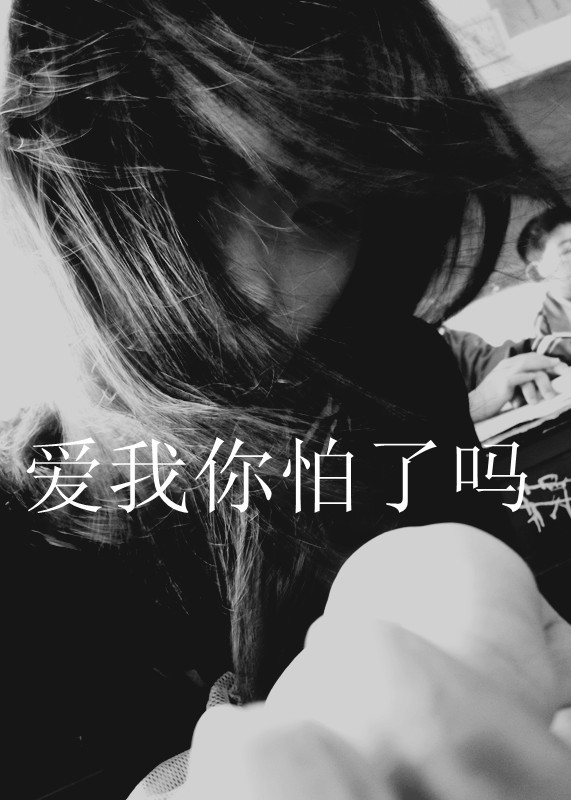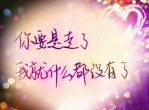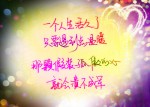
小学生每日英语作文晨读【一】
This "celebrity biography" is about the tribulations and difficulties of the three famous men on the road to fame, from the power of persistence to the disintegration of power even to despair. They abandoned a lot of love and friendship on the way to fame. Finally, they set foot on the road to success.
The first is a belief that, suffering from pain, still does not put down music -- Beethoven. Although he was deaf, he said proudly, "listen to my heart music, you don't understand how I feel! A band can only play music that I expect to write in a minute!" Yeah! His music set of classicism is the beginning of romanticism, and its creation reflects the progressive thoughts of the rising period of the bourgeoisie.
Then a tragic, still sculptural belief - Michelangelo. His pain came from human malice. He was born to fight, to conquer! It is precisely because of this that his artistic creation has been deeply influenced, often with the realism of the civil class at the time of the patriotism and freedom of the struggle of the spirit of the painting. This kind of cup is presented in grand and magnificent form, and his hero is both an ideal symbol and a reflection of reality.
The last is a mirror that Lenin once called "the Russian revolution." Looking around Tolstoy's life, he was not only a literary giant, but also the narrative of life, religion, and society that made him a world-leading thinker. Tolstoy never laid down his obsession with the meaning of life.
小学生每日英语作文晨读【二】
学生是学习的主人,我们的“教”应该为学生的“学”服务。在备课时,教师还应该时时在心中与学生对话,在与学生充分对话的基础上进行的备课活动才能真正体现学生的学习主体地位。
“你对这个话题了解了多少?”——牛津小学英语每一个单元都有一个话题。在我们设计新单元的教学时,这个问题可以提示我们尊重学生的已有经验,关注学生的学习基础,在学生已知已会的基础之上设计教学内容,把属于学生的时间还给学生。
“通过这节课你将学到什么?你是怎么学的?还可以学得更好吗?”——新课程呼唤我们的教学从知识本位回归到三维目标。这一连串问题指向的就是一节课中知识与技能、方法与过程、情感态度与价值观的目标达成。长期以来,我们的英语教学一直比较关注学生对英语知识的掌握情况,忽略了学生学习过程中的感受及体验。其实,真正的有效教学就是要让学生从浅层次的“学会”上升到“会学”与“乐学”,这样的学习才会让学生的终身学习获益。
在备课过程中,我们还要结合教材内容。预设大量的与学生的对话。在这个过程中,我们要注意与学生的对话交流必须付出真心真情。教师真心真意对待学生,才能让孩子们之间真心真意,课堂才会真实。这些年的英语教学实践证明,我们已经从期待表演的、热闹的、师生对答如流的课堂转变为期待真实的课堂和真实的交流。真实的教学问题、自然的教学过程、和谐的教学氛围才能最大程度地促进学生综合语言运用能力的形成。
小学生每日英语作文晨读【三】
每一套教材都代表着某一种教学理念和实践方法,教师在使用一套新教材之时,应站在编者的角度钻研全套教材,努力理解和领会教材编写者的教学思想和设计精神,把握教材的特点,使之在我们的教学中得以充分体现。与教材对话,首先要尊重教材,读透教材;与教材对话,更要超越教材,走向生活。我们不妨尝试“一课三案”:钻研教材,独立思考,形成“初案”;博采众长,融会贯通,写出“教案”;课后反思,精益求精,补充“另案”。
江苏版的《牛津小学英语》教材按照话题——功能——结构的体例编写,在备课时,我们可着力于话题生活化,功能结构协调化。在“初案”中,我们应该重点研读教材,明确教学语言与语境语言,把握关键语句与困难语句;在“教案”形成阶段,我们应分析语用因素,结合师情学情,选择设计各环节活动:课后,结合教学实际再回头看自己的教材解读,及时补充“另案”必不可少。“另案”中,可以反思一节课对教材处理的成功之举、败笔之处、学生感受,当然,对教材的“再教设计”是最终目的。我们对教材的研读应该追求从“有它无我”到“有它有我”,最后达到“有我无它”的洒脱境界。
小学生每日英语作文晨读【四】
太阳橘红的脸很羞涩地探出,在白云中好奇地东张西望。阳光穿过树梢去叫醒枝头上的鸟,从美梦中醒来的鸟,呼朋引伴地卖弄清脆的歌声。
女孩掀起了被子,整理了一下睡衣,从床上跳下来,将挡在眼前的一缕黑发匆匆忙忙地挂在了耳后,然后轻轻地捧起了桌上的书径直走到院子,用欢快的嗓音读“暮从碧山下,山月随人归。却顾所来径,苍苍横翠微”,读“长歌吟松风,曲尽河星稀。我醉君复乐,陶然共忘机”。鸟儿停止了啁啾,立在枝头一动不动地听女孩读书,连身边的晨风都微喘着,生怕惊扰了这位读得认真的女孩。
是的,这是我。
我喜爱早晨,喜爱早晨带给我的焕然一新;喜爱晨读,喜爱晨读带给我的神清气爽。
我喜爱在寂静的小院里晨读,也喜爱在早读课堂上晨读。我也曾观察过班里的同学们晨读的模样——一些人在用双眼直勾勾地看着书,全神贯注地读,一些人捧着书一边声情并茂地读一边摇头晃脑,还有一些人读到一半忽然停下,用手托着下巴不知在思考什么。连那些平常风风火火的同学都安静下来,捧着书本在读。此时的班级就像是一片澎湃着书声波涛的大海,此起彼伏。每个同学无不沉醉在书的海洋中,用心享受晨读。
清晨那和煦的阳光,悦耳的鸟鸣,芳菲的花香让人心驰神往。此时捧上一本书,把花香与书香一起咀嚼,以书声开始清新美好的一天,是再好不过的了。
列夫·托尔斯泰说:“理想的书籍是智慧的钥匙。”那么科学的晨读就应该是步入知识宝殿的阶梯。不晨读的学者就如同不上油的齿轮,如同不授粉的鲜花,如同不扎根的树苗。不能获取更牢固的知识,不能将学问烂熟于心。
我喜爱晨读,现在,将来,今天,明天,我都会去晨读。它不仅是一种习惯,而且它已成为我生命的一部分。不晨读的一天就不是完整的一天。
小学生每日英语作文晨读【五】
The biography of the famous is composed of the famous French writer romain rolland, the biography of Michelangelo and the biography of Tolstoy, all of which were created in the early twentieth century. These three are famous people all over the world, but they do not give in to their fate and fight against their fate.
The first was Beethoven, a German musician who was born poor and dropped out of school. His life was rough and he was brave to fight his fate. His only family had failed him, and he was badly hit, but he survived. The great musician wrote an immortal masterpiece after hearing the deaf. He conquered the disease and overcame the difficulty. Beethoven was successful because of his spirit, unwilling to yield to his fate, and his spiritual values.
The second was Michelangelo, an Italian composer. He was born to a richer family in Florence. He has a high culture and artistic foundation. He spent his life working for the church. And his family kept asking him for money, and Michelangelo never refused their demands. The Pope had erected a monument to himself, which made Michelangelo less than his ideal. He encountered many difficulties in his life. He insisted that he lived to be in his seventies for his own ideal. Only a man with dogged perseverance like Michelangelo will succeed.
The third is Leo Tolstoy, a Russian writer. Tolstoy was born with a silver spoon in his mouth. He has a happy family. He has a high literary talent. He had been successful before, but he didn't care about what he had. He would not enjoy life, he would not spend his life, he would like to reflect the value of his life through human beings. Tolstoy was one of those people who let us see the different sides of the writer, the kind of inner shock that made me feel a lot.
This book tells us to fight our fate bravely, as long as you don't give in to your destiny, one day you will change your fate. There is an old saying that "destiny is in your hands".















